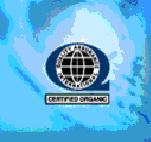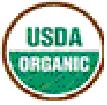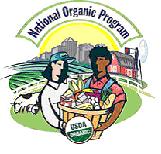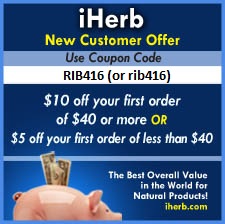The Definition Of Organic Food
|

|
Organic certification – meeting the definition of organic food
Organic certification, usually indicated by a label or symbol, and usually accompanied by the words “certified organic” or words to that effect, is a guarantee that the product and its raw ingredients have been produced according to certain standards set for farmers, food manufacturers, etc.
Strict standards of quality for growing, handling and production have to be met.
Typically, some standards which have to be met by organic farms and food manufacturers include: annual inspections; regular testing of the water and soil used; keeping of records of purchases and practices; and the requirement for a farm to be using organic methods for at least 3 years, before their produce can be certified as organic, i.e. no prohibited substances must be applied to the farming land in that time period.
Surprise inspections are also carried out, while residue tests on organic products may also be conducted.
According to regulations, organic foods must not contain artificial hormones, antibiotics, genetically modified organisms (GMO), hydrogenated fats, thousands of different kinds of artificial flavorings, chemical additives, chemical preservatives, etc, among other chemicals which are allowed in conventional food products.
Agencies overseeing the certification and definition of organic food
The legal definition of organic food falls under the purview of various agencies and authorities in their respective countries. This is an international symbol which you may have previously seen.
In the U.S, organic farming and food production is regulated by the United States Department of Agriculture (USDA) via the National Organic Program (NOP). You may find the following symbols familiar.
In the U.S, when a food product is labeled “organic”, that indicates that at least 95% of its ingredients must be certified organic. When it is labeled “100% organic”, then, well, I think that’s self-explanatory. When it is labeled “made with organic ingredients”, then the minimum proportion of organic ingredients is 70%.
The 95% requirement also applies to Australia. In Australia, you may have seen the following label.
According to Wikipedia, organic certification in various countries are regulated under the following agencies and standards:
• Australia – NASAA Organic Standardhttp://www.nasaa.com.au/steps1.html
• Canada – Canada Gazette, Government of Canada http://canadagazette.gc.ca/partII/2006/20061221-x6/html/extra-e.html
• European Union – EU-Eco-regulation
• India – National Program for Organic Productionhttp://www.apeda.com/organic/
• Japan – JAS Standards. http://www.maff.go.jp/soshiki/syokuhin/hinshitu/e_label/specificJAS-organic.htm
• Sweden – KRAVhttp://www.krav.se/sv/System/Spraklankar/In-English/
• UK – Organic Farmers and Growers Organic Standards http://www.organicfarmers.uk.com/licensees/controlmanual/index.php – Soil Association http://www.soilassociation.org/certification
Conclusion
To assist with better selection of healthful food products, it is imperative that you pick up the habit of looking through food labels and scanning through the ingredients list.
Click here to read more about buying organic food products.
You may also want to read about the many advantages of consuming organic foods.
Pages: 1 2
|
Follow this site
|






















Recent Comments